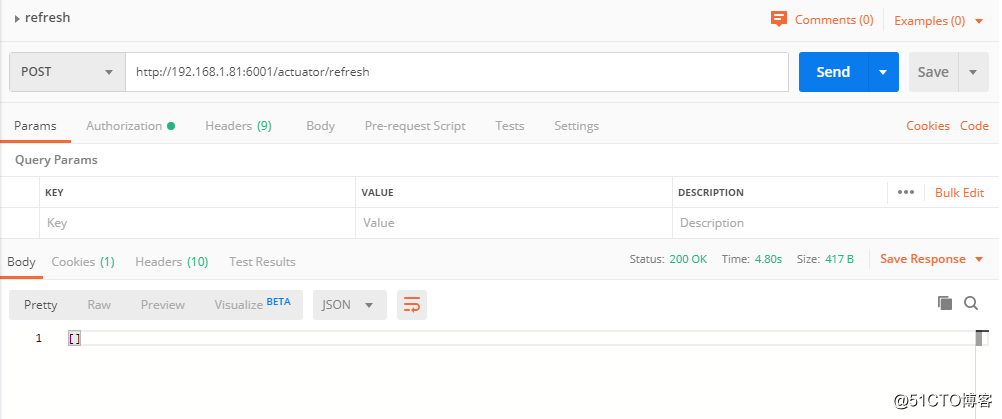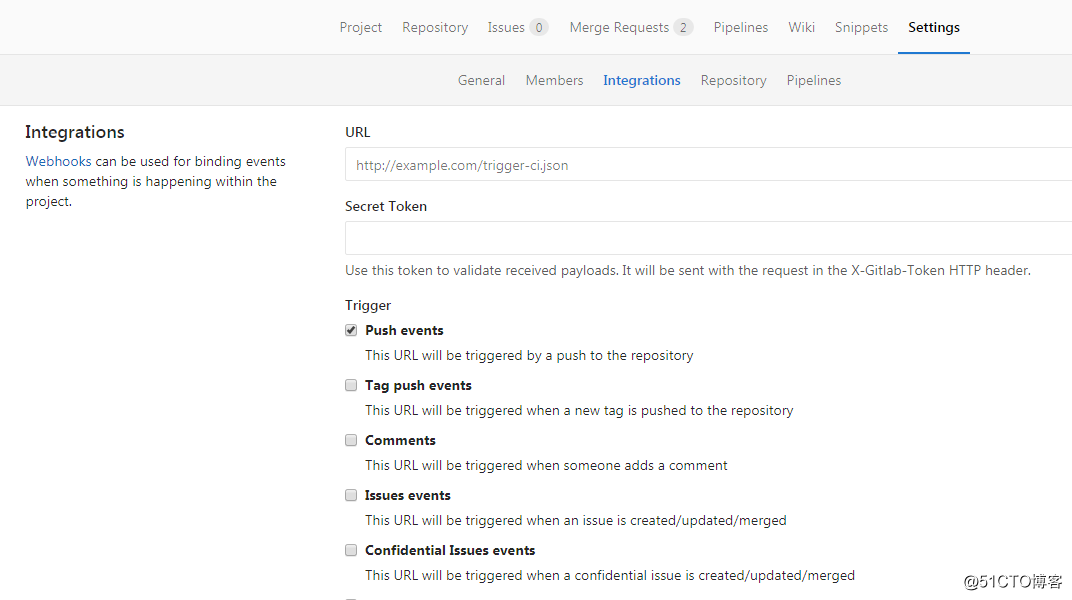有时候在配置中心有些参数是需要修改的,这时候如何不重启而达到实时生效的效果呢?
本文基于以下讲解:
- Spring Cloud Greenwich.SR3
- Spring Boot 2.1.7.RELEASE
- 基于 Git 的配置中心仓库
添加 actuator 依赖
在引用配置中心的项目中添加以下 actuator 依赖:
<dependencies>
...
<dependency>
<groupId>org.springframework.boot</groupId>
<artifactId>spring-boot-starter-actuator</artifactId>
</dependency>
...
</dependencies>
spring-boot-starter-actuator:这个模块的 /actuator/refresh (POST请求)端点可以刷新配置,更多的使用参考 Spring Boot 系列文章。
暴露 refresh 端点
actuator 默认是不暴露 refresh 端点的,需要我们主动暴露,在引用配置中心的项目中添加以下配置:
management:
endpoints:
web:
exposure:
include: refresh,info,health
添加刷新范围
引用了配置中心的项目,在需要刷新的 Bean 上添加 @RefreshScope 注解。
示例1:
@RefreshScope
@RestController
public class TestController {
@Value("${username}")
private String username;
...
}
示例2:
@RefreshScope
@ConfigurationProperties(prefix = "spring.mail")
public class MailProperties {
...
}
当配置更改时,标有 @RefreshScope 的 Bean 将得到特殊处理来生效配置,不然改了配置不会刷新的。@RefreshScope 的原理可以参考这篇文章:Spring Cloud @RefreshScope 原理是什么?,很详细。
手动刷新配置
修改配置后,我们可以通过 post 到 /actuator/refresh 即可手动刷新配置。
如下图所示:

如果参数有变更,刷新成功的话,会返回一个含有参数名的变更数组。
自动刷新配置
如果你使用了 Gitlab 或者 Github 仓库,可以配置 Webhooks 来做到自动更新,当参数变更时,能做到自动通知。
Gitlab配置如下图所示:

Github也差不多的,可以配置一个 URL(用于变更通知)和一个 Secret Token(用于请求验证)。
但这种方式仅限于单台,如果有多台或者多个系统,该如何通知,恐怕需要加一个公共接口来绕一圈了。
如果需要请求头认证的,可以使用这种方式:
https://user:password@ip:port/xxxx
扩展问题
如果使用配置中心项目少的情况,我们是可以通过上面的方式进行配置动态刷新,如果项目比较复杂的情况呢?
上面的方式肯定都是行不通的,Spring Cloud Bus 消息总线可以解决配置修改的真正的动态刷新,请看下回分解。关注微信公众号:Java技术栈,第一时间推送。
原文:https://blog.51cto.com/u_15222959/2811283
